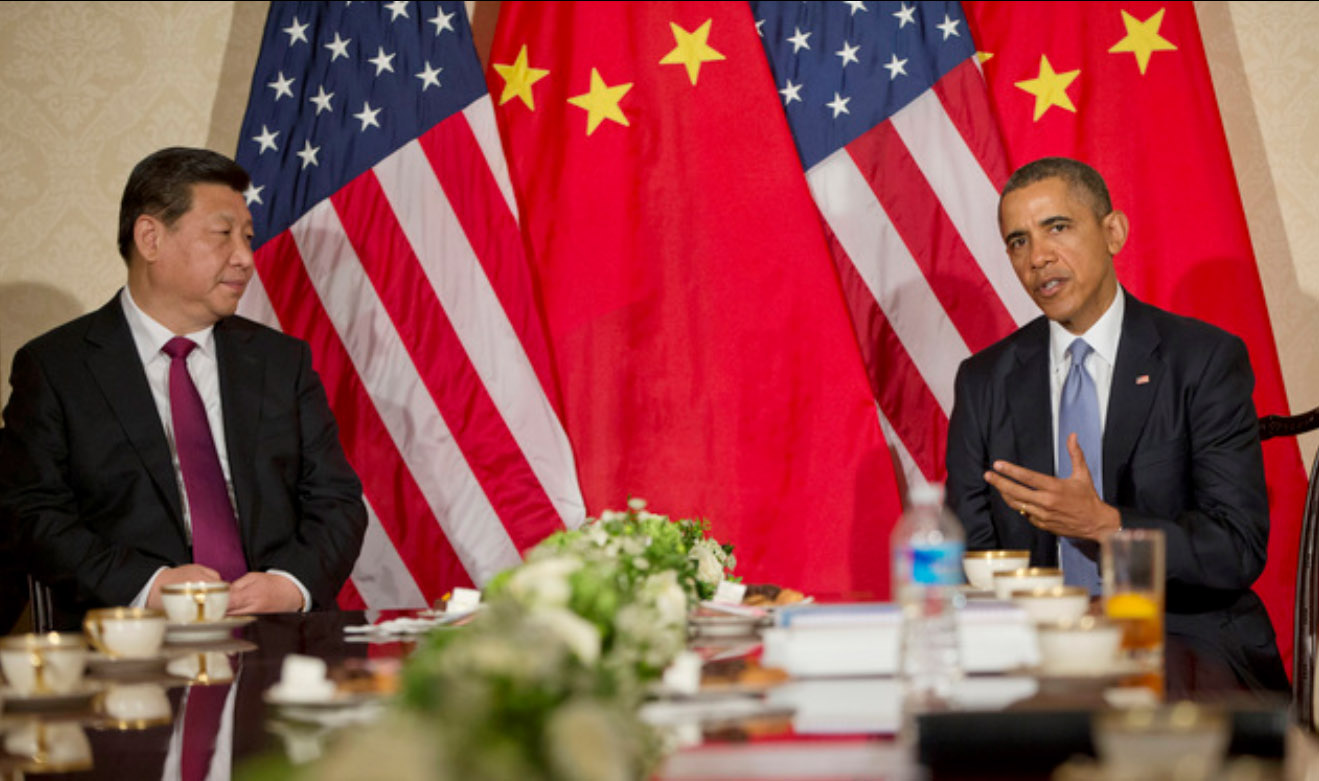The Chinese Communist Party’s Ideological Battle with the West (Part 1)
 National Congress of the Communist Party of China
http://bit.ly/2skc7vL
National Congress of the Communist Party of China
http://bit.ly/2skc7vL
Editor’s Note: This article is the first of a two-part series on the causes of the Chinese Communist Party’s ideological fight with Western political norms and values, and its battlefields. In Part I, Leroy examines the CCP’s ideological insecurity and the defensive action it is taking to ensure its survival. In Part II, Leroy explores the CCP’s offensive activities in foreign countries to arrive at an ideological status-quo with the West.
As evidenced by recent news of Chinese-bought political influence in Australia, the past few years have witnessed increasing Chinese involvement in domestic affairs of developing and developed countries alike. This comes as a response to the growing sense of ideological insecurity in the Chinese Communist Party (hereafter referred as the ‘CCP’), which also has repercussions in China’s own domestic affairs. In fact, China’s one-party state has long feared to meet the same fate as the USSR. It consequently devotes a considerable amount of academic research on the fall of the Soviet regime; many concluded that the USSR imploded because the ruling class no longer believed in the Soviet ideology. The CCP hence considers Western “ideological infiltration” – the propagation of values and norms embodied by liberal democracy – as a key threat to its survival.
Following Bueno de Mesquita’s selectorate theory, political leaders that want to stay in power must satisfy their winning coalition – the subset of population whose support is needed to “survive” politically. In an authoritarian regime like China, the winning coalition is small (in relative terms). There, the winning coalition is composed of business leaders and outward-looking urban elite as well as the more inward-looking high-ranking party officials. In Bueno de Mesquita’s model, satisfying a small winning coalition requires the distribution of enough private goods for them not to defect. In addition, defection can occur if a political challenger can presumptively promise more benefits to a member of the winning coalition than those from whom he/she currently receives. Yet, I argue that ideological defection can also be a threat to the winning coalition’s loyalty, and thus to a leader/regime’s survival. In China, this idea is only reinforced by Xi Jinping’s massive clamp down on corruption.

Indeed, the Mercator Institute for China Studies (MERICS) holds that “discrediting Western values and systems of government is seen as vital because large parts of the elite send their children to be educated abroad. This means that from the CCP’s point of view, the next generation of leaders is at risk of being “won over” by the West, necessitating a systematic discrediting.” According to the Chinese Ministry of Education, since China’s opening reforms in the late 1980s, a total of about 4 million Chinese students have studied overseas, and half of them returned to China after their studies. And the relative number of returnees is increasing.
Stories of the CCP taking action towards those students are growing. The New York Times reported about the connections between 150 chapters of the Chinese Students and Scholars Association (CSSA) and Chinese consulates in the world. It was “suggesting that Chinese authorities may play a role in at least some of the student backlash” on university campuses over the events that cover China-related sensitive political subjects (Tiananmen protests, Tibet, etc). Similarly, class discussions of these topics by Chinese students in the US and Australia have been reported to their families back home by the Chinese government. Finally, at the University of Maryland, College Park, a Chinese student denounced in her commencement speech the “air pollution” in China while praising the “fresh air of free speech” of the US. This sparked sharp criticism and nationalistic comments in Chinese social media. As it encourages self-censorship, the surveillance and bullying of its own diaspora show the extent to which the CCP is willing to go towards the aim of “muting criticism and protecting Chinese interests“.
The CCP fears that it has lost contact with the Chinese youth whose loyalty to the party is crucial to its survival. The Communist Youth League (CYL) has been accused of “becoming more and more bureaucratic, administrative, aristocratic and entertainment-oriented.” Notable measures have thus been taken. The CYL cadres are now asked to be “friends” with young people, thereby replacing the traditional hierarchical relationship. It is also expected that the CYL will increase its online presence and cultural activities in order to appeal to the new generation of Chinese people.
Journalists and academics are also members of the winning coalition whose hearts and minds must be conquered, or rather forced. With regards to the academic world, Christopher Balding, a Professor in international economics at the Peking University HSBC School of Business in Shenzhen, writes: “From declaring that universities should be at the forefront of ideological influence to conducting political checks demanding self-criticism and rectification from impure universities, the space for any academic freedom has effectively disappeared.”
Fearing ideological defection among its population, and most importantly its “winning coalition”, the CCP is taking multiple actions to ensure ideological conformity and party loyalty. These defensive measures range from surveilling Chinese students abroad – where ideological “infection” is the most likely – to journalists, academia and the youth in China. The next article of the series will analyse China’s offensive methods abroad to tilt the ideological balance in its favour.
